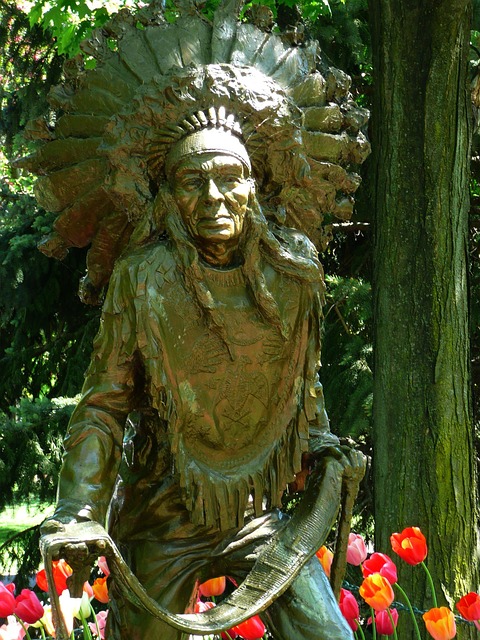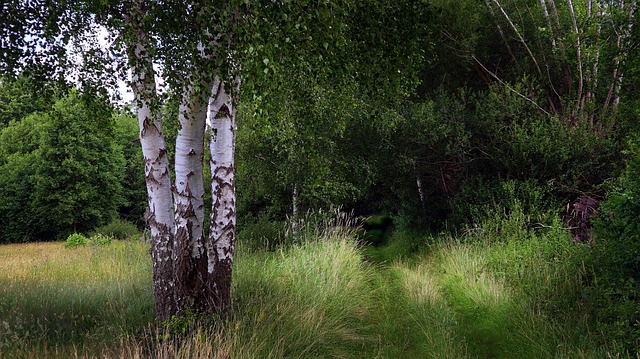Lane County, Oregon, is celebrated for its rich indigenous heritage and deep connection to nature. Native American tribes have inhabited this region for centuries, amassing Traditional Ecological Knowledge (TENK) about local flora and fauna passed down through generations. This knowledge shapes sustainable practices centered around medicinal plants, edible flora, wildlife for sustenance, ceremonies, and healing rituals. Lane County tribal culture emphasizes ecological balance, with each species holding symbolic meanings and spiritual significance. Elders share stories that underscore the interdependence between humans and animals, fostering a deep respect for nature. Through hunting, gathering, and farming traditions, tribes maintain a harmonious connection with the land, preserving their cultural heritage while contributing to biodiversity conservation and environmental stewardship.
In Lane County, Oregon, a rich tapestry of Indigenous knowledge intertwines with the region’s natural landscape. This article explores the historical context and vibrant cultural heritage of the local tribes, delving into their profound understanding of plants and animals. From medicinal herbs to traditional rituals centered on nature, Lane County tribal culture mirrors a deep respect for the Earth. We uncover how this ecological wisdom is being preserved and revived, highlighting the importance of recognizing and honoring the Indigenous knowledge that has shaped this region.
- Historical Context: A Glimpse into Lane County's Indigenous Heritage
- Tribal Plant Knowledge: Medicinal Herbs and Traditional Uses
- Animal Significance in Lane County Tribal Culture
- Cultural Practices and Rituals Connected to Nature
- Preserving and Reviving Traditional Ecological Wisdom
Historical Context: A Glimpse into Lane County's Indigenous Heritage

Lane County, Oregon, boasts a rich indigenous heritage with a deep-rooted connection to the land and its natural resources. For centuries, Native American tribes have inhabited this region, cultivating extensive knowledge of local plants and animals that has been passed down through generations. This cultural legacy is an integral part of the county’s history, offering a unique perspective on the relationship between humans and their environment.
The Lane County tribal culture is characterized by a profound understanding of ecological balance. Indigenous communities have historically relied on their intimate knowledge of medicinal plants, edible flora, and wildlife for sustenance, ceremonial practices, and healing rituals. This traditional ecological knowledge (TENK) serves as a guide for sustainable coexistence with nature, ensuring the preservation of both cultural and biological diversity.
Tribal Plant Knowledge: Medicinal Herbs and Traditional Uses

In Lane County, Oregon, the local Native American tribes possess a rich and ancient knowledge of their natural surroundings, including an extensive understanding of plant life and its medicinal properties. This traditional ecological knowledge (TEK) forms an integral part of their cultural heritage and has been passed down through generations. Tribal members have long utilized indigenous plants for various purposes, from crafting tools and baskets to creating natural remedies and food sources.
The medicinal herbs of Lane County tribal culture are diverse and varied. Tribes like the Yakama, Umpqua, and Coos have traditionally relied on specific plants for their healing properties. For instance, the Yakama people have used cedar bark for its anti-inflammatory and antimicrobial qualities, often applying it to treat skin ailments and wounds. Other plants, such as wild lavender and chamomile, are renowned for their calming effects, used in teas and poultices to reduce anxiety and promote sleep. This deep connection with nature has enabled the tribes to maintain a harmonious relationship with their environment, ensuring the sustainability of these valuable resources for future generations while preserving their unique cultural heritage in Lane County.
Animal Significance in Lane County Tribal Culture

In Lane County, Oregon, tribal communities have long held a deep connection with the natural world, where animals play a pivotal role in their cultural heritage and knowledge systems. Each species is viewed as an integral part of the ecosystem, carrying symbolic meanings and spiritual significance. For example, the eagle, with its majestic flight and sharp eyesight, represents strength, courage, and spiritual awareness among local tribes. Similarly, salmon, abundant in the region’s rivers, symbolizes resilience and sustenance, reflecting the tribe’s dependence on these resources for survival and cultural continuity.
The knowledge of animal behaviors and habitats is not merely practical but also serves as a teaching tool within Lane County tribal culture. Elders pass down stories and legends that highlight the interdependence between humans and animals, emphasizing the importance of respect, balance, and harmony with nature. These narratives shape the tribe’s worldview, fostering a deep sense of responsibility to protect and preserve the land and its inhabitants for future generations.
Cultural Practices and Rituals Connected to Nature

In Lane County, Oregon, the local tribal cultures have deep-rooted connections to nature, which are woven into their everyday lives and sacred rituals. Traditional practices, such as hunting, gathering, and farming, not only sustain their communities but also foster a profound respect for the land and its inhabitants. These cultural practices are often tied to specific plants and animals that hold significant spiritual value in Lane County tribal culture. For instance, certain herbs might be used in ceremonial smoking ceremonies or for medicinal purposes, while animals like the salmon could feature prominently in creation stories and seasonal celebrations.
Rituals and ceremonies in Lane County tribal communities frequently center around the natural world, marking important transitions and honoring ancestors. These events can involve dance, song, and offerings to the spirits of the land and sky. The knowledge of plant and animal behaviors, as well as their medicinal properties, is carefully preserved and passed down through generations, ensuring a continuous relationship between the people and their environment. This harmonious connection with nature remains a cornerstone of Lane County tribal culture to this day.
Preserving and Reviving Traditional Ecological Wisdom

In Lane County, Oregon, the rich cultural heritage of Native American tribes is deeply intertwined with their traditional ecological wisdom. The knowledge passed down through generations about local plants and animals holds a treasure trove of sustainable practices that are increasingly relevant in today’s world. This indigenous ecological literacy includes understanding complex ecosystems, recognizing the interconnectedness of all life, and managing natural resources responsibly. By preserving and reviving this traditional ecological knowledge, Lane County tribal communities are not only honoring their ancestors but also contributing to the global effort to protect biodiversity and promote environmental stewardship.
Revitalizing these ancient practices offers a unique opportunity to reconnect with nature and foster a deeper appreciation for the delicate balance of ecosystems. Local tribes are actively involved in conservation efforts, sharing their traditional knowledge with scientists, educators, and the broader community. This collaborative approach ensures that ecological wisdom, once endangered, is preserved and can guide sustainable land use, habitat restoration, and biodiversity conservation initiatives in Lane County and beyond.






